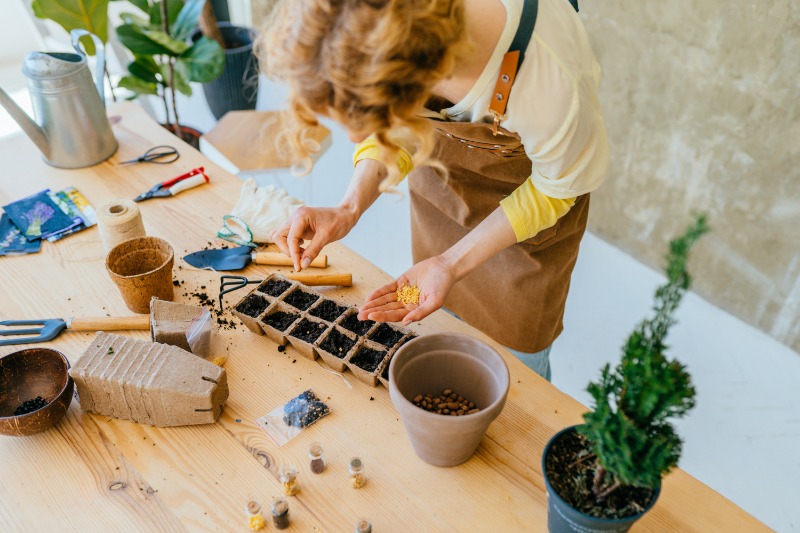Gardens at home have become a trend in recent years, and eating pesticide-free food is an increasingly recurring habit, especially among a new generation of young people and adults concerned about prioritizing their health. The benefits for the environment, our bodies, and even our pockets are diverse, and, therefore, on this occasion, we want to give you everything you need to know to create your own sustainable gardens at home.
A garden at home is an adaptation of the traditional garden that we normally see in the field in a much smaller space. Before I go into the matter and tell you how you can create one, you should know why it is important to have one in your home.
- First, you will help reduce the carbon footprint on the planet because you will contribute to reducing the number of products that must be transported or packaged.
- If you produce your own food, you will be 100 percent certain that it is free of pesticides and added chemicals and that it has not been genetically modified.
- In the same way, you will be able to save money that you can use to cover some fixed expenses or other needs that arise.
Aspects that you should consider when creating a sustainable garden
When creating a garden at home, you can use different planting methods, but you must be clear that care must be constant and that it will require a lot of dedication.
- Find a sunny place because vegetables need direct sunlight. It can be your patio, terrace, or balcony, so you can easily choose the type of container you should use.
- Select small containers with an average depth of 20 centimeters. The most common are flowerpots, but the most appropriate are cultivation tables, although these have a higher cost.
- Work with easy-to-use tools like a transplanter, cultivator, or mango rake.
- Use fertile soil or substrate and buy quality seeds.
- Keep the soil moist. Experts recommend clay pots, but it all depends on your budget.
Step by step to create a sustainable garden at home
The creation of a sustainable garden can be a therapy or an ideal moment to instill in your children and family about the protection of the environment and how to contribute to each space with small but significant steps.
Once you have defined the place and have all the materials, especially the containers where you are going to grow, you must do the following:
- Place a layer of clay in the container you selected because it will help you have good drainage, which is key for the plants to grow properly.
- Fill the container with the selected substrate and try to spread it evenly; do not forget to leave a space of two fingers between the surface and the edge of the support.
- Flatten the top of the selected substrate or soil with a small rake.
- Sow the seeds and then water them so that they settle well; do not forget that the earth must be well moistened.
- Finally, cover the surface with pine bark or straw to retain moisture.
What can be planted in sustainable orchards
The Food and Agriculture Organization of the United Nations (FAO) highlights that the creation of home gardens is an environmentally friendly practice. For every square meter, 20 kilos of food are produced per year, and urban farms can be up to 15 times more productive than rural farms.
The objective of having gardens at home is to generate self-consumption while at the same time protecting the environment. The important thing is that these types of orchards are suitable for planting almost everything, and if you do it correctly, you can have your harvest in 2 to 4 months; that is, you will have the possibility of harvesting your own lettuce, tomatoes, radishes, peppers, eggplants, zucchini, and other 100 percent organic vegetables.
Remember that we are what we consume, and in these times, being certain that we are producing food free of chemicals while at the same time helping to conserve our planet is a combination that gives us peace of mind and the satisfaction of knowing that we are doing the right thing.















